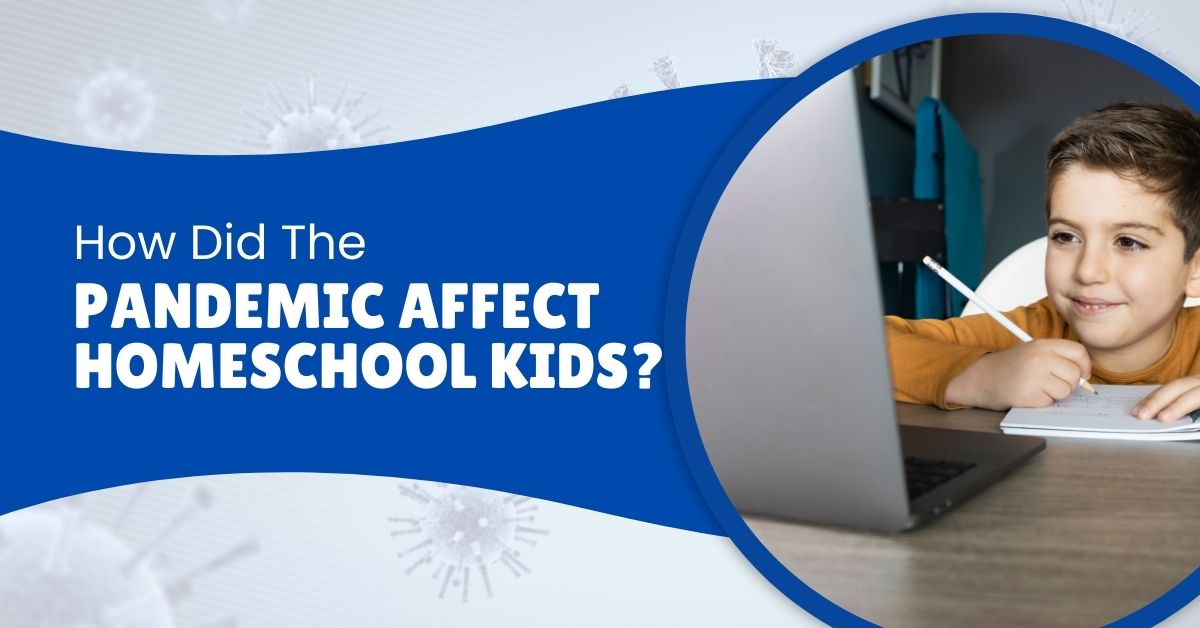The pandemic created ripple effects across nearly every aspect of life, and education was no exception. For many families, homeschooling became a necessity rather than a choice as schools shut down. While the pandemic introduced new opportunities for homeschoolers, it also brought challenges that need to be navigated thoughtfully by parents and educators. Here’s how the pandemic affected kids who transitioned to or remained in homeschooling, as well as the long-term implications for the homeschooling community.
A Surge in Homeschooling Enrollment
One of the most noticeable effects of the pandemic was the sharp rise in the number of families choosing to homeschool. With uncertainties around school closures, remote learning difficulties, and safety concerns, parents sought a more hands-on approach to their children’s education.
What Drove Families to Homeschool?
- Remote Learning Fatigue: Parents saw their children struggling with online classes in traditional schools. Issues like unengaging Zoom lessons and lack of structure made many turn to homeschooling.
- Health and Safety: Families worried about the health risks of sending kids back to crowded classrooms.
- Customization: Homeschooling allowed parents to tailor education to their child’s individual needs, a luxury that many parents discovered during lockdowns.
Data Reflecting the Trend
- According to the U.S. Census Bureau, homeschooling rates more than doubled between 2020 and 2021 at the height of the pandemic.
- Certain demographic groups, including Black families, saw particularly notable increases in homeschooling adoption. This highlights how diverse communities turned to homeschooling for flexibility and quality learning alternatives.
While not all families stuck with homeschooling after schools reopened, a significant portion found its benefits compelling enough to make it a long-term choice.
Socialization Challenges in Homeschooling
Socialization is often cited as one of the trickiest parts of homeschooling, and the pandemic amplified this concern. Homeschool kids can generally rely on community resources, extracurricular activities, and co-ops for opportunities to engage with peers. However, pandemic-related restrictions made connecting with others harder.
Impact of Limited Social Interaction
- Decreased Group Activities: During the height of the pandemic, many co-ops, libraries, and activity centers were closed, cutting off key avenues for homeschoolers to meet peers.
- Alone Time at Home: With parents working from home and siblings often learning independently, some children ended up spending long stretches of time isolated.
- Heightened Worries About Social Skills: Parents expressed concerns about their kids missing out on everyday opportunities to build friendships or practice teamwork.
Solutions for Socialization Issues
While the pandemic created barriers, resourceful parents found innovative ways to overcome them:
- Online Social Groups: Virtual clubs, gaming circles, and online classrooms took off. While not the same as in-person interaction, these avenues provided kids with much-needed social engagement.
- Pod Learning: Some families formed small, consistent learning pods to ensure safe, face-to-face interaction.
- Outdoor Meetups: When weather and restrictions allowed, backyard science experiments, hikes, and park playdates became popular.
These strategies don’t just fill the gaps during crises. Moving forward, many families consider them valuable additions to their socialization toolkits even in normal times.
The Long-Term Trends in Homeschooling
The pandemic’s impact on homeschooling goes far beyond temporary shifts. It seems to have fundamentally altered the homeschooling landscape and the way families perceive education.
More Families are Homeschooling for the Long Haul
Parents who initially homeschooled out of necessity often discovered benefits they hadn’t expected, such as:
- Improved Academic Performance: Teaching methods tailored to the child’s pace and learning style often led to better outcomes.
- Closer Family Bonds: Spending extra time together during the pandemic strengthened relationships within the family.
- Freedom in Curriculum Choices: Many parents appreciated the ability to focus on subjects or teaching styles overlooked in traditional schools.
This means that even as classrooms reopened, some families opted to continue homeschooling and are likely to stick with it.

Increased Resources for Homeschoolers
The educational field hasn’t just regained footing; it’s growing. The rise in homeschooling has led to a boom in supportive resources:
Online Learning Platforms: Companies now offer flexible digital tools for homeschool curriculums, from interactive science kits to advanced coding tutorials.
Hybrid Options: Some schools and organizations have developed hybrid models where homeschoolers can join specific group classes while still learning primarily from home.
Curriculum Diversity: Specialized curriculums geared toward homeschooling were already available pre-pandemic. Now, the variety is even greater, with options catering to STEM, arts-focused, or faith-based education.
These shifts make homeschooling more accessible and sustainable for families from all walks of life.
Practical Tips for Parents Navigating Post-Pandemic Homeschooling
For parents who are considering or continuing homeschooling, here are practical steps to make the most of this approach:
Leverage Online Communities: Platforms like homeschool-specific Facebook groups and online forums give parents access to advice, curriculum ideas, and even local co-op information.
Create a Daily Routine: Kids thrive in structured environments, so set regular times for lessons, outdoor play, and relaxation.
Join a Co-Op: These groups are a popular way to share knowledge and give kids opportunities for group learning.
Focus on the “Why”: Whether you’re homeschooling temporarily or permanently, keep your family’s educational priorities at the center. This will help you stay clear about what’s working and what isn’t.
Homeschooling doesn’t have to be overwhelming when approached with clarity and support.
Adapting for the Future
The pandemic taught families the importance of adaptability. For homeschooling parents, this means being open to evolving approaches that suit their children’s needs best. Whether it’s adopting new tools, seeking out fresh co-op opportunities, or integrating social programs into routines, there is always room to improve and fine-tune the process.
While homeschooling saw unprecedented growth during the pandemic, the fundamental values remain unchanged. Personalized education, flexibility, and family involvement continue to empower kids, pandemic or not. By focusing on available resources and staying connected within the homeschooling community, parents can make this educational path an enriching and rewarding experience for their kids for years to come.



